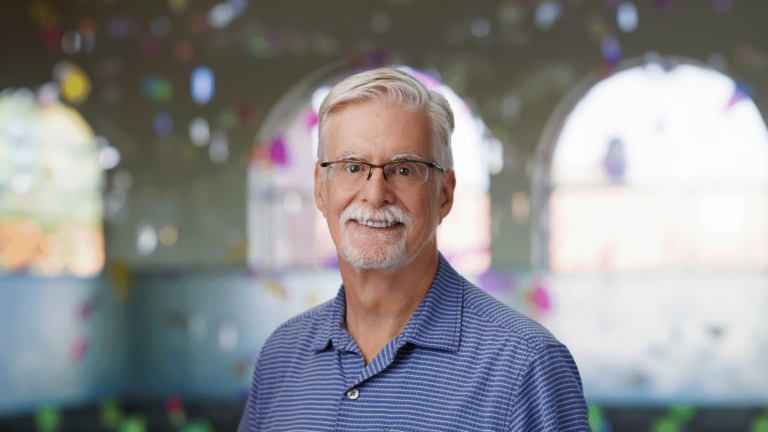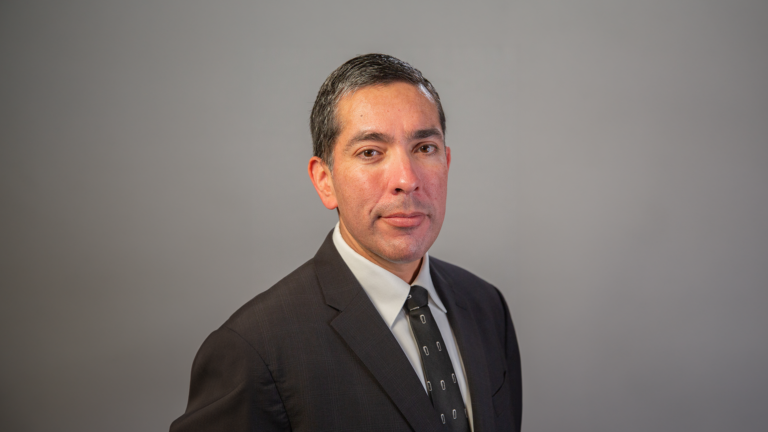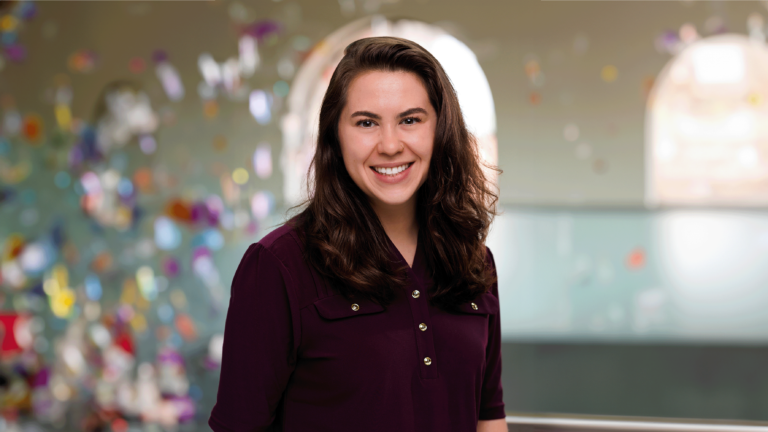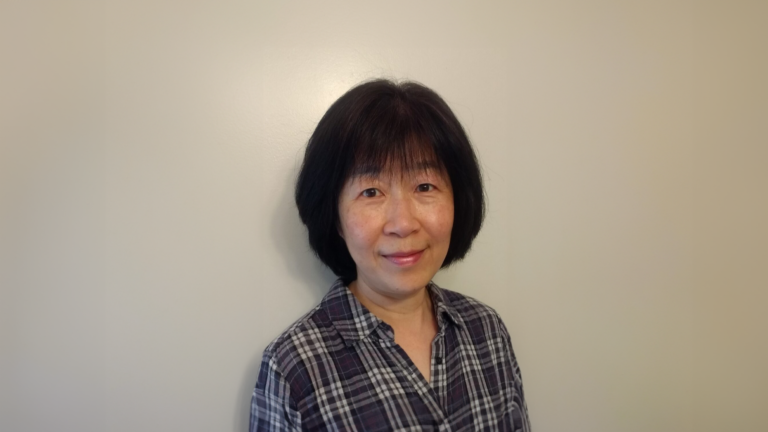Center for Self-Report Science
Overview

The mission of the USC Dornsife Center for Self-Report Science (CSS) is to improve our understanding about how people answer questions about themselves and to develop innovative methods that provide accurate, reliable, and ecologically valid self-reports.
Our Team
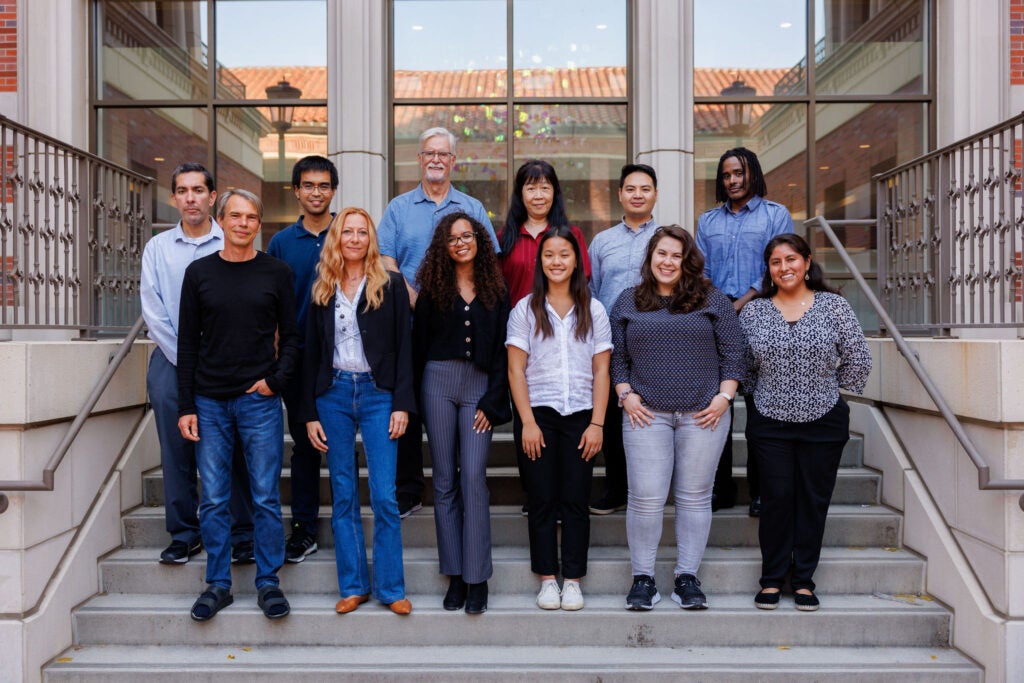
Director
Joan E. Broderick, PhD
Administrative Assistant
Senior Project Specialist
Project Specialist
Senior Research Scientist
Senior Research Scientist
Biostatistician
Research Themes

Ecological Validity of NIH PROMIS Scales
Over the last decade, team members have been part of the consortium working to create the NIH PROMIS® (Patient-Reported Outcomes Measurement and Information System) set of instruments. We have conducted studies to determine the ecological validity of PROMIS instruments by comparing PROMIS 7-day recall scores with daily diary data obtained from the same individuals over the same reporting periods.
Self-Report and Aging
A current project supported by the NIH National Institute on Aging examines the possibility that the age effects observed in wellbeing and health surveys may, in part, be explained by reporting factors that vary by age. We are examining this in the areas of self-reported health, pain, fatigue, and subjective wellbeing. There is preliminary data to suggest that people of different age groups use different ways of answering questions, thus yielding what looks like age differences in these domains. The true understanding of the aging process requires that the same “metric” is used across all age groups.
Subjective Well-being Measurement and Policy
Our team has contributed to the development of tools for the measurement of subjective wellbeing, especially those that assess everyday hedonic or experiential wellbeing. We have published substantive studies using these tools to examine how wellbeing covaries with various demographic and environmental characteristics. Center members have also participated in national and international forums on the use of wellbeing for formulating governmental policies, including OECD (Organization for Economic Cooperation and Development) regarding well-being and policy.
Time-use and Experience
Several of our studies are focused on innovative ways of collecting self-report data, including methods that ask respondents to recreate yesterday’s experiences in detail. In particular, we have been involved with the analysis of the Bureau of Labor Statistics’ American Time Use Survey, which has recently collected information about experiences and symptoms for a selection of each respondent’s set of time-use episodes. Another current project funded by the Physicians Foundation is collecting multiple reports of types of work tasks performed by physicians across a day to empirically characterize time use. We are also refining and validating the Day Reconstruction Method instruments, including short versions of the instrument that are intended for use in national surveys.
Self-Reported Symptoms in Healthcare
With the increasing use of momentary assessment come new possibilities for summarizing patients’ symptom experiences over different reporting periods. Using the detailed information provided by daily and within-day data capture methods, we will be exploring the utility of alternative ways of creating symptom scores. This holds the potential to design new outcome variables for clinical trials that will go beyond current methods that rely upon “average” or “usual” levels of symptom experience.
The explosion of use of electronic devices in patients’ lives along with the extensive implementation of the electronic medical record has opened exciting possibilities for improving clinical communication and care. Recognition of the value of patient engagement in care is generating widespread interest in capturing PROs through EHR patient portals. One of our current projects showcased by the White House Cancer Moonshot program captures daily and weekly patient reported outcomes in cancer patients undergoing chemotherapy. These data will be leveraged with mobile sensory monitoring to improve tracking of patient status between office visits and prediction of response to treatment.
Funding Sources
| USC Dornsife College of Letters, Arts, and Sciences | Roybal Center: Center for Research on Experience and Wellbeing, Princeton | Department of Defense (DoD) |
| National Institute on Aging (NIA) | Pfizer Independent Grants for Learning & Change | National Cancer Institute (NCI) |
| National Institute of Arthritis and Musculoskeletal and Skin Diseases (NIAMS) | National Science Foundation (NSF) | Physicians Foundation |
Collaborative Network
Recent Publications
2024
Hernandez, R., Jin, H., Lee, P.-J., Schneider, S., Junghaenel, D. U., Stone, A. A., Meijer, E., Gao, H., Maupin, D., & Zelinski, E. M. (2024). Attrition from longitudinal ageing studies and performance across domains of cognitive functioning: An individual participant data meta-analysis. BMJ Open, 14(3), e079241. https://doi.org/10.1136/bmjopen-2023-079241
Hernandez, R., Schneider, S., Pinkham, A. E., Depp, C. A., Ackerman, R., Pyatak, E. A., Badal, V. D., Moore, R. C., Harvey, P. D., Funsch, K., & Stone, A. A. (2024). Comparisons of Self-Report With Objective Measurements Suggest Faster Responding but Little Change in Response Quality Over Time in Ecological Momentary Assessment Studies. Assessment, 10731911241245793. https://doi.org/10.1177/10731911241245793
-
Hernandez, R., Jin, H., Pyatak, E. A., Roll, S. C., & Schneider, S. (2023). Workers’ whole day workload and next day cognitive performance. Current Psychology.
Pham, L. T., Hernandez, R., Spruijt-Metz, D., Gonzalez, J. S., & Pyatak, E. A. (2023). Movement matters: Short-term impacts of physical activity on mood and well-being. Journal of Behavioral Medicine.
Hoogendoorn, C. J., Hernandez, R., Schneider, S., Harmel, M., Pham, L. T., Crespo-Ramos, G., Agarwal, S., Crandall, J., Peters, A. L., Spruijt-Metz, D., Gonzalez, J. S., & Pyatak, E. A. (2023). Glycemic Risk Index Profiles and Predictors Among Diverse Adults With Type 1 Diabetes. Journal of Diabetes Science and Technology, 193229682311641.
Hernandez, R., Schneider, S., Pham, L., & Pyatak, E. A. (2023). Across and Within- Individual Associations Between Everyday Activities and Quality of Life Relevant Measures, in Workers with Type 1 Diabetes. Applied Research in Quality of Life.
-
Jihad Slim, MD, FACP, Douglas Ward, MD, Stefan Schneider, MD, Madhusudan Kabra, BPharm, MSc, Gustavo Verdier, BSc, BPharm, MBA, Clifford B Jones, BSc MSc MB ChB, Emilio Letang, MD, MPH, PhD, 1285. Systematic Literature Review of Real-world Experience with the 2-Drug Regimen Dolutegravir and Lamivudine in People with HIV Who Would Not Have Met Inclusion Criteria for the Phase 3 Clinical Program, Open Forum Infectious Diseases, Volume 9, Issue Supplement_2, December 2022, ofac492.1116, https://doi.org/10.1093/ofid/ofac492.1116
Junghaenel, Doerte U., Stefan Schneider, Bart Orriens, Haomiao Jin, Pey-Jiuan Lee, Arie Kapteyn, Erik Meijer, Elizabeth Zelinski, Raymond Hernandez, and Arthur A. Stone. 2023. “Inferring Cognitive Abilities from Response Times to Web-Administered Survey Items in a Population-Representative Sample” Journal of Intelligence 11, no. 1: 3. https://doi.org/10.3390/jintelligence11010003
Stone AA, Schneider S, Smyth JM. Evaluation of Pressing Issues in Ecological Momentary Assessment. Annual Review of Clinical Psychology. 2022 Dec. DOI: 10.1146/annurev-clinpsy-080921-083128. PMID: 36475718. https://doi.org/10.1146/annurev-clinpsy-080921-083128
Fred Wen, C. K., Schneider, S., Weigensberg, M. J., Weerman, B., & Spruijt-Metz, D. (2022). Accuracy of a Photo-based Smartphone Application to Assess Salivary Cortisol Sampling Time in Adolescents. Field Methods, 0(0). https://doi.org/10.1177/1525822X221141226
Raymond Hernandez, Haomiao Jin, Elizabeth A. Pyatak, Shawn C. Roll, Jeffrey S. Gonzalez & Stefan Schneider (2022) Perception of whole day workload as a mediator between activity engagement and stress in workers with type 1 diabetes, Theoretical Issues in Ergonomics Science, https://doi.org/10.1080/1463922X.2022.2149878
Margaret Gatz, PhD, Stefan Schneider, PhD, Erik Meijer, PhD, Jill E Darling, MSHS, Bart Orriens, PhD, Ying Liu, PhD, Arie Kapteyn, PhD, Identifying cognitive impairment among older participants in a nationally representative internet panel, The Journals of Gerontology: Series B, 2022;, gbac172, https://doi.org/10.1093/geronb/gbac172
Schneider, S., Junghaenel, D.U. Estimating reliabilities and correcting for sampling error in indices of within-person dynamics derived from intensive longitudinal data. Behav Res (2022). https://doi.org/10.3758/s13428-022-01995-1
Döhmen, A., Kock, M., Fischer, F., Obbarius, Alexander, et al. Are OMERACT recommendations followed in clinical trials on fibromyalgia? A systematic review of patient-reported outcomes and their measures. Qual Life Res (2022). https://doi.org/10.1007/s11136-022-03261-5
Liegl, Gregor Obbarius, Alexander Rose, Matthias Fischer, Kathrin I. Stengel, Andreas Knebel, Fabian Buttgereit, Frank Nolte, Sandra (2022). Frequently Used Patient-Reported Outcome (PRO) Measures of General Physical Function Were Highly Correlated With a Multi-Task Performance Outcome (PerfO) Test Battery. Value in Health. 2022/06/11/ 1098-3015 https://doi.org/10.1016/j.jval.2022.05.008
Pyatak Elizabeth, Spruijt-Metz Donna, Donna, Scheider Stefan, Crandall Jill P., Peters Anne L., Jin Haomiao, Agarwal Shivani, Pham Loree T., Ali Aina, Hoogendoorn Claire J., Crespo-Ramos Gladys, Mendez-Rodgriguez Heidy, Lee Pey-Jiuan, Ruelas Valeirie F., Basile Rose, Gonzlez Jeffrey S., 278-OR: ADA Presidents’ Select Abstract: Impact of Overnight Blood Glucose on Next-Day Functioning in T1D. Diabetes vol71. June 2022. https://doi.org/10.2337/db22-278-OR
Gonzalez Jeffrey S., Spruijt-Metz Donna, Schneider Stefan, Peters Anne L., Crandall Jill P., Crespo-Ramos Gladys, Mendez- Rodriguez, Hoogendoorn Claire J., Agarwal Shivani, Jin Haomiao, Pham Loree T., Ali Aina, Lee Pey-Jiuan, Ruelas Valerie F., Basile Rose, Pyatak Elizabeth, 279-OR Self-Efficacy, Diabetes Distress, Self-Care, and Blood Glucose: Within-Person Pathways in Adults with T1D. Diabetes vol71. June 2022. https://doi.org/10.2337/db22-279-OR
Schneider S, Jin H, Orriens B, et al. Using Attributes of Survey Items to Predict Response Times May Benefit Survey Research. Field Methods. May 2022. https://doi.org/10.1177%2F1525822X221100904
Liu Y, Schneider S, Orriens B, Meijer E, Darling J, Gutsche T, Gatz M Self-administered Web-Based Tests of Executive Functioning and Perceptual Speed: Measurement Development Study With a Large Probability-Based Survey Panel
J Med Internet Res 2022;24(5):e34347 URL: https://www.jmir.org/2022/5/e34347 DOI: 10.2196/34347Mak HW, Wang D, Stone AA (2022) Momentary social interactions and affect in later life varied across the early stages of the COVID-19 pandemic. PLoS ONE 17(4): e0267790. https://doi.org/10.1371/journal.pone.0267790
Schneider Stefan, PhD, Junghaenel Doerte, PhD, Meijer Erik, PhD, Zelinski Elizabeth, PhD, Jin Haomiao, PhD, Pey-Jiuan Lee, MS, Stone Arthur, PhD, Quality of survey responses at older ages predicts cognitive decline and mortality risk, Innovation in Aging, 2022;, igac027, https://doi.org/10.1093/geroni/igac027
Weigensberg, M. J., Wen, C. K. F., Spruijt-Metz, D., & Lane, C. J. (2022). Effects of Group-delivered Stress-reduction Guided Imagery on Salivary Cortisol, Salivary Amylase, and Stress Mood in Urban, Predominantly Latino Adolescents. Global Advances in Health and Medicine. https://doi.org/10.1177/21649561211067443
Cerino, E. S., Schneider, S., Stone, A. A., Sliwinski, M. J., Mogle, J., & Smyth, J. M. (2022). Little evidence for consistent initial elevation bias in self-reported momentary affect: A coordinated analysis of ecological momentary assessment studies. Psychological Assessment. Advance online publication. https://doi.org/10.1037/pas0001108
Stone AA, Walentynowicz M, Schneider S, Junghaenel DU, Broderick JE, Deaton A. Item Context Effects Are Relevant for Monitoring Evaluative Well-being: Replication of Previous Work and Mitigation. Field Methods. February 2022. https://doi.org/10.1177%2F1525822X221077393
-
Wen, Cheng K.F., Chih-Ping Chou, Britni R. Belcher, Marc J. Weigensberg, David S. Black, and Donna Spruijt-Metz. 2021. “The Acute Relationship between Affective States and Stress Biomarkers in Ethnic Minority Youths” International Journal of Environmental Research and Public Health 18, no. 23: 12670. https://doi.org/10.3390/ijerph182312670
Schneider, S., Junghaenel, D.U., Zelinski, E.M., Meijer, E., Stone, A.A., Langa, K.M., Kapteyn, A. (2021). Subtle mistakes in self-report surveys predict future transition to dementia. Alzheimer’s and Dementia: Diagnosis, Assessment and Disease Monitoring, 13:e12252. https://doi.org/10.1002/dad2.12252
Hernandez, Raymond et al. “Validation of the National Aeronautics and Space Administration Task Load Index (NASA-TLX) adapted for the whole day repeated measures context.” Ergonomics, 1-16. 22 Nov. 2021, https://doi.org/10.1080/00140139.2021.2006317
Jin, Haomiao et al. “An informatics approach to examine decision-making impairments in the daily life of individuals with depression.” Journal of biomedical informatics vol. 122 (2021): 103913. https://doi.org/10.1016/j.jbi.2021.103913
Mak HW, Schneider S. High and Low Arousal Daily Affect Dynamics Vary Across the Adult Lifespan. J Gerontol B Psychol Sci Soc Sci. 2021 Oct 26:gbab203. doi: 10.1093/geronb/gbab203. Epub ahead of print. PMID: 34698841. https://doi.org/10.1093/geronb/gbab203
Pyatak, E. A., Hernandez, R., Pham, L. T., Mehdiyeva, K., Schneider, S., Peters, A., Ruelas, V., Crandall, J., Lee, P. J., Jin, H., Hoogendoorn, C. J., Crespo-Ramos, G., Mendez-Rodriguez, H., Harmel, M., Walker, M., Serafin-Dokhan, S., Gonzalez, J. S., & Spruijt-Metz, D. (2021). Function and Emotion in Everyday Life With Type 1 Diabetes (FEEL-T1D): Protocol for a Fully Remote Intensive Longitudinal Study. JMIR research protocols, 10(10), e30901. https://doi.org/10.2196/30901
Hernandez, R.; Pyatak, E.A.; Vigen, C.L.P.; Jin, H.; Schneider, S.; Spruijt-Metz, D.; Roll, S.C. Understanding Worker Well-Being Relative to High-Workload and Recovery Activities across a Whole Day: Pilot Testing an Ecological Momentary Assessment Technique. Int. J. Environ. Res. Public Health 2021, 18, 10354. https://doi.org/10.3390/ijerph181910354
Aslı Akın, Inge Seiffge-Krenke, Alexander Obbarius, Matthias Reitzle & Lea Sarrar (2021) Parenting behavior and psychodynamic conflicts: Cross-sectional findings in a normative sample of adolescents and their parents, Nordic Psychology, https://doi.org/10.1080/19012276.2021.2001681
Junghaenel, D. U., Broderick, J. E., Schneider, S., Wen, C. K. F., Mak, H. W., Goldstein, S., Mendez, M., & Stone, A. A. (2021). Explaining age differences in the memory-experience gap. Psychology and Aging, 36(6), 679–693. https://doi.org/10.1037/pag0000628
Smyth, J.M., Jones, D.R., Wen, C.K.F., Materia, F.T., Schneider, S., Stone, A.A. (2021). The influence of ecological momentary assessment study design features on reported willingness to participate and perceptions of potential research studies: An experimental study. BMJ Open, 11(7),e049154. https://bmjopen.bmj.com/content/11/7/e049154
Newman DB, Schneider S, Stone AA. Contrasting Effects of Finding Meaning and Searching for Meaning, and Political Orientation and Religiosity, on Feelings and Behaviors During the COVID-19 Pandemic. Personality and Social Psychology Bulletin. July 2021. doi:10.1177/01461672211030383 https://journals.sagepub.com/doi/full/10.1177/01461672211030383
Brooke M. Bell, Donna Spruijt-Metz, Christine H. Naya, Christianne J. Lane, Cheng K. Fred Wen, Jaimie N. Davis, Marc J. Weigensberg, The mediating role of emotional eating in the relationship between perceived stress and dietary intake quality in Hispanic/Latino adolescents, Eating Behaviors, Volume 42, 2021, 101537, ISSN 1471-0153, https://doi.org/10.1016/j.eatbeh.2021.101537. https://www.sciencedirect.com/science/article/pii/S1471015321000647
Barcellos S, Jacobson M, Stone AA (2021) Varied and unexpected changes in the well-being of seniors in the United States amid the COVID-19 pandemic. PLoS ONE 16(6): e0252962. https://doi.org/10.1371/journal.pone.0252962
Schneider S, Junghaenel DU, Ono M, Stone AA. Temporal dynamics of pain: an application of regime-switching models to ecological momentary assessments in patients with rheumatic diseases. Pain. 2018 Jul;159(7):1346-1358. doi: 10.1097/j.pain.0000000000001215. PMID: 29557930; PMCID: PMC6008214. https://pubmed.ncbi.nlm.nih.gov/29557930/
Wen C, Junghaenel D, Newman D, Schneider S, Mendez M, Goldstein S, Velasco S, Smyth J, Stone A The EffeWen C, Junghaenel D, Newman D, Schneider S, Mendez M, Goldstein S, Velasco S, Smyth J, Stone A The Effect of Training on Participant Adherence With a Reporting Time Frame for Momentary Subjective Experiences in Ecological Momentary Assessment: Cognitive Interview Study JMIR Form Res 2021;5(5):e28007 URL: https://formative.jmir.org/2021/5/e28007 DOI: 10.2196/28007ct
Obbarius, Alexander1,2; Schneider, Stefan1; Junghaenel, Doerte U.1; Stone, Arthur A.1,3 Achieving reliable pain change scores for individuals in postoperative phase, PAIN: May 07, 2021 – Volume Articles in Press – Issue –
doi:10.1097/j.pain.0000000000002328 https://journals.lww.com/pain/Abstract/9000/Achieving_reliable_pain_chan…Stone, Arthur A.a,b,*; Obbarius, Alexandera,c; Junghaenel, Doerte U.a; Wen, Cheng K.F.a; Schneider, Stefana High-resolution, field approaches for assessing pain: Ecological Momentary Assessment, PAIN: January 2021 – Volume 162 – Issue 1 – p 4-9
doi:10.1097/j.pain.0000000000002049 https://journals.lww.com/pain/Fulltext/2021/01000/High_resolution,_field…Walentynowicz, M., Schneider, S., Junghaenel, D.U. et al. Vague Quantifiers Demonstrate Little Susceptibility to Frame of Reference Effects. Applied Research Quality Life (2021). https://doi.org/10.1007/s11482-020-09889-0
Schneider S, Junghaenel DU, Gutsche T, Mak HW, Stone AA Comparability of Emotion Dynamics Derived From Ecological Momentary Assessments, Daily Diaries, and the Day Reconstruction Method: Observational Study J Med Internet Res 2020;22(9):e19201 http://www.jmir.org/2020/9/e19201/
-
Stone AA, Broderick JE, Wang D, Schneider S (2020) Age patterns in subjective wellbeing are partially accounted for by psychological and social factors associated with aging. PLoSONE 15(12): e0242664. https://doi.org/10.1371/journal.pone.0242664
Schneider Stefan, Junghaenel Doerte, Ono Masakatsu, Broderick Joan, Stone Arthur,
III. Detecting Treatment Effects in Clinical Trials With Different Indices of Pain Intensity Derived From Ecological Momentary Assessment, The Journal of Pain, 2020 http://www.sciencedirect.com/science/article/pii/S1526590020300882Schneider Stefan, Junghaenel Doerte, Broderick Joan, Ono Masakatsu, May Marcello, Stone Arthur,
II. Indices of Pain Intensity Derived From Ecological Momentary Assessments and Their Relationships With Patient Functioning: An Individual Patient Data Meta-analysis, The Journal of Pain, 2020 http://www.sciencedirect.com/science/article/pii/S1526590020300870Stone Arthur, Broderick Joan, Goldman Roberta, Junghaenel Doerte, Bolton Alicia, May Marcella, Schneider Stefan,
I. Indices of Pain Intensity Derived From Ecological Momentary Assessments: Rationale and Stakeholder Preferences,
The Journal of Pain, 2020 http://www.sciencedirect.com/science/article/pii/S1526590020300699Obbarius, Alexandera,b,*; Schneider, Stefana; Stone, Arthur A.a,c A combination of pain indices based on momentary assessments can predict placebo response in patients with fibromyalgia syndrome, PAIN: February 2021 – Volume 162 – Issue 2 – p 543-551 doi: 10.1097/j.pain.0000000000002025 https://journals.lww.com/pain/Fulltext/2021/02000/A_combination_of_pain_…
Wang D, Schneider S, Schwartz JE and Stone AA (2020) Heightened Stress in Employed Individuals Is Linked to Altered
Variability and Inertia in Emotions. Front. Psychol. 11:1152. doi:10.3389/fpsyg.2020.01152 https://www.frontiersin.org/articles/10.3389/fpsyg.2020.01152/fullMak, H. W., & Schneider, S. (in press). Individual differences in affect reactivity to pain and their associations with mental health in patients with chronic pain. Journal of Psychosomatic Research. http://dx.doi.org/10.1016/j.jpsychores.2020.110227
Mak, H. W., Fosco, G. M., & Lanza, S. T. (in press). Dynamic associations of parent-adolescent closeness and friend support with adolescent depressive symptoms across ages 12-19. Journal of Research on Adolescence. http://dx.doi.org/10.1111/jora.12597
Mak, H. W., Russell, M. A., Lanza, S. T., Feinberg, M. E., & Fosco, G. M. (2020). Age-varying associations of parental knowledge and antisocial peer behavior with adolescent substance use. Developmental Psychology, 56, 298-311. http://dx.doi.org/10.1037/dev0000866
-
Mattke Soeren, Schneider Stefan, Orr Patrick, Lakdawalla Darius & Goldman Dana (2019): Temporal Trends in Mortality after Transcatheter Aortic Valve Replacement: A Systematic Review and Meta-Regression Analysis, Structural Heart, https://doi.org/10.1080/24748706.2019.1689321
Moreno-Agostino, D., Stone, A. A., Schneider, S., Koskinen, S., Leonardi, M., Naidoo, N., Tobiasz-Adamczyk, B., Haro, J. M., Miret, M., Kowal, P., Ayuso-Mateos, J. L., & Chatterji, S. (2019, July 1). Are Retired People Higher in Experiential Wellbeing Than Working Older Adults? A Time Use Approach. Emotion. Advance online publication. http://dx.doi.org/10.1037/emo0000637
Junghaenel, D.U., Schneider, S. & Stone, A.A. Do people with arthritis differ from healthy controls in their internal comparison standards for self-reports of health, fatigue, and pain?. J Patient Rep Outcomes 3, 21 (2019). https://doi.org/10.1186/s41687-019-0108-3
Ono M, Schneider S, Junghaenel DU, Stone AA What Affects the Completion of Ecological Momentary Assessments in Chronic Pain Research? An Individual Patient Data Meta-Analysis J Med Internet Res 2019;21(2):e11398
URL: https://www.jmir.org/2019/2/e11398/ doi:10.2196/11398Stone AA, Schneider S, Junghaenel DU, Broderick JE. Response styles confound the age gradient of four health and well-being outcomes. Soc Sci Res. 2019 Feb;78:215-225. doi: 10.1016/j.ssresearch.2018.12.004. Epub 2018 Dec 8. PMID: 30670217. https://doi.org/10.1016/j.ssresearch.2018.12.004
Stone Arthur, Walentynowicz Marta, Schneider Stefan, Junghaenel Doerte, Wen Cheng,
MTurk participants have substantially lower evaluative subjective well-being than other survey participants,
Computers in Human Behavior,Volume 94,2019,Pages 1-8,ISSN 0747-5632
https://doi.org/10.1016/j.chb.2018.12.042.
https://www.sciencedirect.com/science/article/pii/S0747563218306289Filus, A., Junghaenel, D.U., Schneider, S. et al. Age Effects of Frames of Reference in Self-Reports of Health, Well-Being, Fatigue and Pain. Applied Research Quality Life 15, 35–54 (2020). https://doi.org/10.1007/s11482-018-9663-7
Newsroom
-
September, 2021: Dr. Adela C. Timmons host of The Digital Health Trends podcast interviews Dr. Arthur Stone.
Dr. Arthur Stone discusses the daily diary method, how he co-created Ecological Momentary Assessment, the Day Reconstruction Method, why research seems to be trending to smaller and smaller time periods, how self-monitoring can affect study outcomes, how he incorporates passive sensing in his studies, and what he sees as some of the biggest challenges facing this field of study.March 25, 2018
Call for Papers: Measurement and Tracking of Subjective Well-Being for Aging Research
The NBER will host a conference on the Measurement and Tracking of Subjective Well-Being for Aging Research on July 28, 2018, in Cambridge, MA.
The aim of the conference is to develop future researchers in economics who are prepared to use the measurement and tracking of SWB in the service of aging research by incorporating methodologies from psychology, economics, and other disciplines. It is organized by Arthur Stone, Daniel Benjamin, Kristen Cooper, Ori Heffetz, and Stefan Schneider.
The 2018 conference is funded by the NBER Center for Aging and Health Research (PIs: Anne Case & David Cutler). The meeting organizers are applying for NIH funding and hope to hold annual meetings in future years.
Invitations and logistical information will be sent out in May. If you have any questions or need additional information, please contact Carl Beck in the NBER’s conference department at 617-588-0380 or cbeck@nber.org.
June 16, 2017: Arthur Stone delivers keynote at the Fifth Biennial Meeting of the Society for Ambulatory Assessment in Luxembourg.
Title: Challenges remaining for the field of real-time, self-reported data
(Please click here to view keynote presentation)
Over the last 40 years, there has been a pronounced shift in techniques for measuring self-reports. It is now relatively common for ambulatory methods to query participants in real time about their thoughts, feelings, social and physical environments, and symptoms. There nevertheless remain several issues that diminish the impact and application of real-time self-reports, some of which have been mentioned in prior reviews. Among the issues to be discussed are: the low participation rate of people in such studies and the potential for many missing momentary reports, both of which are influenced by high burden associated with these studies; the inadequacy of our psychometric understanding of momentary reports and the lack of application of “modern” psychometric techniques; that we do not have a thorough understanding of the meaning of questions asked in the moment; the nagging issue of reactivity of monitoring; and, the difference between truly momentary reports.
June 15, 2017: Joan Broderick receives new funding to support dissemination of Pain Coping Skills Training, an evidence-based intervention for patients with chronic pain.
The California Health Care Foundation awarded a grant to Dr. Joan Broderick to train Los Angeles County health care providers in non-pharmaceutical approaches to the management of chronic pain. This work is being supported as part of a state-wide initiative to reduce prescriptions for opioid medications. Dr. Mindy Aisen, Co-Chair of the LAC Department of Health Services SPC Chronic Non-Cancer Pain Work Group and Chief of Innovation & Research at Rancho Los Amigos National Rehabilitation Center, and Dr. Patricia Bruckenthal, Associate Dean for Nursing Research and Innovation at Stony Brook University School of Nursing, are collaborators. This grant also provides support for development of a Train-the-Trainer workshop to encourage further dissemination of PCST within California healthcare systems. Systematic evaluation of the utility and rates of PCST implementation will be conducted following the workshops with an emphasis on patients currently prescribed opioid medications. One of the unique features of this training is a focus on strategies for implementation within multidisciplinary teams versus “momentary” assessments that cover a longer time period. I argue that these issues call out for timely study and suggest several paths for doing so.
December 16, 2016: Marcella May and Joan Broderick
“Can Real-Time Technologies Improve Cancer Patient Care?”The advent of low-cost, real-time monitoring technologies is allowing researchers to collect more data than ever before. A USC trial investigates whether this data can be used to improve cancer patient care by bridging the information gap between doctor’s office visits.
October 17, 2016: Arthur Stone awarded John Ware and Alvin Tarlov Career Achievement Prize
Professor Arthur Stone, Director of the USC Dornsife Center for Self-Report Science (CSS) and Professor of Psychology, will receive the annual John Ware and Alvin Tarlov Career Achievement Prize for Patient Reported Outcomes Measures. The prize will be awarded at a ceremony during the annual meeting of the International Society for Quality Assurance in Health Care held in Tokyo, Japan, October 2016.
Patient Reported Outcomes (PROs) refer to patients’ self-reports about their health and well-being. PRO assessments are used by healthcare professionals in the care of patients and by behavioral and medical researchers to monitor health and to evaluate interventions to remedy diseases. The prize acknowledges Prof. Stone’s contributions to this field, including the development of real-time techniques for capturing patient experiences (Ecological Momentary Assessment and the Day Reconstruction Method) and, as a team effort, the Patient Reporting Outcome Monitoring and Information System (PROMIS). Over his career, he has also contributed to the fields of behavioral medicine and subjective well-being.
October 12, 2016: Op-ed in U.S. News & World Report, “Move beyond drugs to manage pain”
Dr. Joan Broderick of CSS and Dr. Jason Doctor, Associate Professor in the School of Pharmacy and the Director of Health Informatics at the Leonard D. Schaeffer Center for Health Policy and Economics at USC, have published an op-ed urging health policy changes to support access to non-opioid treatment for chronic pain. It was published today in U.S. News & World Report.
October 4, 2016: Opioid crisis policy paper published
Dr. Joan Broderick of CSS and Dr. Jason Doctor, Associate Professor in the School of Pharmacy and the Director of Health Informatics at the Leonard D. Schaeffer Center for Health Policy and Economics at USC, led a group of chronic pain experts in writing a policy paper on the opioid crisis. It was published today in Health Affairs Blog. The paper describes the treatment paradigms of the last several decades that inadvertently led to the opioid epidemic and policy initiatives that could effectively reshape treatment of chronic pain going forward.
October 3, 2016: Patient reported outcomes in cancer featured at White House event
CSS’s Dr. Joan Broderick and research assistant Marcella May have been collaborating with a multidisciplinary team at USC to improve patient care and clinical decision-making in the field of oncology. The ATOM-HP project, lead by USC Drs. Peter Kuhn and Jorge Nieva, is investigating the utility of intense, in vivo assessments of patient symptoms and health status in cancer patients undergoing chemotherapy. The CSS team leads the daily assessment of the patient-reported outcomes component. The ATOM-HP project has been recognized by Vice-President Joseph Biden’s Cancer Moonshot initiative and was invited to “South by South Lawn: A White House Festival of Ideas, Art and Action” (SXSL) to showcase this innovative work.
October 1, 2016: New study being launched to track physician work activities
Dr. Joan Broderick and Dr. Larry Casalino (Weill Cornell Medicine, Cornell University) have been awarded a 1-year grant from the Physicians Foundation to study physician work behavior. Rates of burnout among physicians are increasing, and with the increased use of EHRs and complexity of documentation, a systematic study of physician time spent in different work tasks will provide systematic data to frame the conversation.
Precise measurement of time usage is challenging, especially in busy medical settings. Obtaining data that are not subject to recall bias is important. One option is coding of direct observation by a researcher in the physican’s office; however, this is difficult to do in large, geographically diverse samples. To meet this challenge, we designed a pilot study using Ecological Momentary Assessment (EMA), an assessment procedure developed by Arthur Stone, director of CSS, with others. We will be tracking physicians (N=90) across three specialties on a typical workday in the office. Physicians will be “beeped” every 45 – 60 minutes and will indicate the activity that they were engaged in at the moment of the beep, thus avoiding recall. Work activities completed before and after office hours also will be captured. Depending upon the density of time sampling, the data generated for individual physicians are likely to be quite variable; however, across a large sample of physicians with reasonable compliance, the method does yield unbiases estimates of time-in-task. The goal of the project is to demonstrate feasibility of the approach to provide the basis for a study with a much larger sample.
SEPTEMBER 8, 2016: New research: Understanding HIV risk environment for Youth in Supportive Housing
Drs. Ania Filus and Stefan Schneider together with Dr. Benjamin Henwood (Principal Investigator) of the USC School of Social Work have received new NIH funding. They will investigate how Supportive Housing offered to homeless transition-age youth (TAY) in Los Angeles affects their HIV-risk behaviors. TAY are young people between the ages of 16 and 24 who are in transition from state custody or foster care, and are therefore aging out of the system. TAY experiencing homelessness are at highest risk for sexually transmitted diseases, including HIV, based on their patterns of substance use and sexual behaviors. Supportive Housing is a structural intervention that is being increasingly used with homeless TAY. Despite data indicating the positive effects of Supportive Housing on housing stability, there are elements of Supportive Housing that may instead promote HIV-risk behaviors. While Supportive Housing may create a safe space that exposes youth to more positive social influences as compared to being homeless, it may also be a space where an increase in substance use and abuse, selling of drugs engaging in unprotected sex, and therefore increased risk of HIV may occur.This study will use qualitative methods and Ecological Momentary Assessment to investigate the mechanisms that can explain the association between Supportive Housing and HIV-risk behaviors among homeless TAY (unprotected sex and drug abuse). It is expected that the effects of Supportive Housing on homeless TAY’s risk behaviors can be explained by contextual factors such as where and with whom one spends their time and intra-individual factors such as mood and mental health. Since research has not yet addressed whether Supportive Housing yields the same outcomes for all youth, this study also investigates how individual factors such as age, gender, and sexual orientation may moderate the effects of Supportive Housing on TAY’s HIV-risk behaviors.
The results will provide the basis to guide future development of Supportive Housing for homeless TAY, and homeless populations in general. In addition, the findings from this study can capitalize on homeless TAY’s widespread use of mobile phone technology and be used to design Ecological Momentary Interventions for homeless populations.
MAY 19, 2016: CSS researcher collaborates on pill-free protocol for treating chronic pain:
Read the full article: http://dornsife.usc.edu/news/stories/2350/usc-dornsife-psychology-researcher-collaborates-on-pill-free-pro/
APRIL 18, 2016: What does it mean to have “frequent” health symptoms? It depends on whom you ask.
Social scientists commonly use labeled rating scales to assess health problems. For example, a question may ask “Do you have trouble sleeping: ‘never’, ‘rarely’, ‘sometimes’, or ‘often’”? Responses to these types of questions are used to compare health problems across groups and to make policy decisions. However, these comparisons assume that labels such as ‘rarely’ or ‘often’ have the same meaning to different people. A recent article by Drs. Schneider and Stone questions the validity of this assumption. In the study, people rated their health symptoms using the traditional labeled scales, and – to clarify the meaning of the ratings – they were asked to count how many times the symptoms occurred. The results indicate that having health symptoms ‘often’ denotes a higher frequency for respondents with a medical history than for those without. Younger and older respondents also differ in how they interpret the response labels. The study suggests that the “measuring sticks” that people apply when they rate their health problems are not always comparable. Read the full article: http://link.springer.com/article/10.1007/s11136-016-1293-7
NOVEMBER 17, 2015: Understanding Social Security Administration nomenclature: Implications for retirement decisions
Drs. Filus and Stone with Lila Rabinovich of the USC Center for Social and Economic Research are conducting a qualitative study to examine people’s understanding of the language used by the Social Security Administration (SSA) around retirement benefits and claiming decisions. The SSA informs the American public about social security programs and benefits in many different ways. For the SSA to be effective it must understand what its target audience knows about social security and whether the nomenclature used to explain retirement benefits is understandable. A recent study by Suzanne Shu (School of Management, UCLA, 2015) indicates that SSA nomenclature itself may be confusing to beneficiaries, potentially affecting their retirement decisions and claims behavior. Furthermore, the study indicated that age and gender of respondents may be related to understanding of social security benefits.
This study will build on Shu’s findings and will further explore why people are confused about SSA nomenclature and their social security retirement benefits. Using qualitative interviews, we want to learn how people interpret specific SSA nomenclature as well as whether beneficiaries’ demographic characteristics can be associated with how they understand their retirement benefits. For example it is important to know whether there are substantial differences in knowledge and understanding of social security retirement between younger and older beneficiaries, men and women or people of different socio-economic status. Finally, we will investigate whether new, easier to understand terms could be generated that could replace standard terms used by SSA. We anticipate that the outcomes of this study may form the basis for improving future communication strategies used by the Social Security Administration.
NOVEMBER 2, 2015: Broderick joins USC Human Optimization Project
Drs. Broderick has joined the USC Kuhn Lab, Department of Biological Sciences, in a one-year pilot project. This program is a joint effort of the National Cancer Institute’s Center for Strategic Initiatives and the Department of Defense’s Rapid Response Technology Office. It is aimed at improving the lives of cancer patients undergoing treatment and the successful mission completion/survival of warfighters. Both the patient and the warfighter suffer from treatment/duty-induced fatigue that impairs their ability to survive/perform. While the sources of the fatigue might be different, the measurement approaches might be similar. This project brings together intellectual competencies from around USC and other collaborating institutions to frame the problem and look at paths for solutions that can affect outcomes for patients undergoing treatment and warfighter readiness. The CSS team will be contributing expertise in the measurement of self-reported fatigue.
JANUARY 15, 2015: Moment of Truth
Creators of the Day Reconstruction Method, an assessment tool that evaluates people’s experiences and well-being moment-to-moment, recently convened at USC on the 10th anniversary of its inception. Read the full article: https://dornsife.usc.edu/news/stories/1953/moment-of-truth/
NOVEMBER 20, 2014: As Young as You Feel
How you feel as you age may depend on where you live, says a new study by psychology’s Arthur Stone who examined self-reports from around the world. Read the full article: http://dornsife.usc.edu/news/stories/1911/as-young-as-you-feel/
NOVEMBER 12, 2014: Pfizer awards Broderick $350,000 grant for training nurse practitioners in pain management
Millions of Americans suffer with chronic pain despite receiving medical care. Pain Coping Skills Training (PCST), a cognitive-behavioral treatment for chronic pain, has been developed and shown to be effective by clinical health psychologists over the last two decades. However, few psychologists are trained in this treatment and they are not widely available in community medical clinics. Thus, patients have not had access to this treatment. PCST guides patients in the acquisition of a set of self-management skills that help to reduce pain, regulate activity to reduce pain flares, and re-engage in life roles and interests to improve wellbeing.
Dr. Joan Broderick of USC’s Dornsife Center for Self-Report Science and colleagues recently completed a multi-site clinical trial1 to test the effectiveness of nurse practitioners (NPs) delivering PCST to patients with chronic osteoarthritis pain in community settings. Results confirmed that NPs could achieve patient improvements equivalent to those reported in the original clinical trials.
Based on the success of the nurse practitioner trial, Pfizer awarded Dr. Broderick and her colleague, Dr. Bruckenthal at the School of Nursing, Stony Brook University, a grant to test a national training program in PCST for nurse practitioners. This project will first train NPs in PCST and then will evaluate the utility of this training for improving pain and quality of life outcomes among a sample of patients of the trained nurses. If effective, it will demonstrate a new way of disseminating PCST treatment via NPs, and in the end will make this treatment available to many more chronic pain patients.
1https://www.researchgate.net/publication/262683846
MARCH 10, 2014: New USC center seeks accuracy in health self-reports
Center for Self-Report Science focuses on facts. Read the full article: https://news.usc.edu/59901/new-usc-center-seeks-accuracy-in-health-self-…
Contact Us
To get in touch with the USC Center for Self-Report Science (CSS), please contact our administrative assistant:
